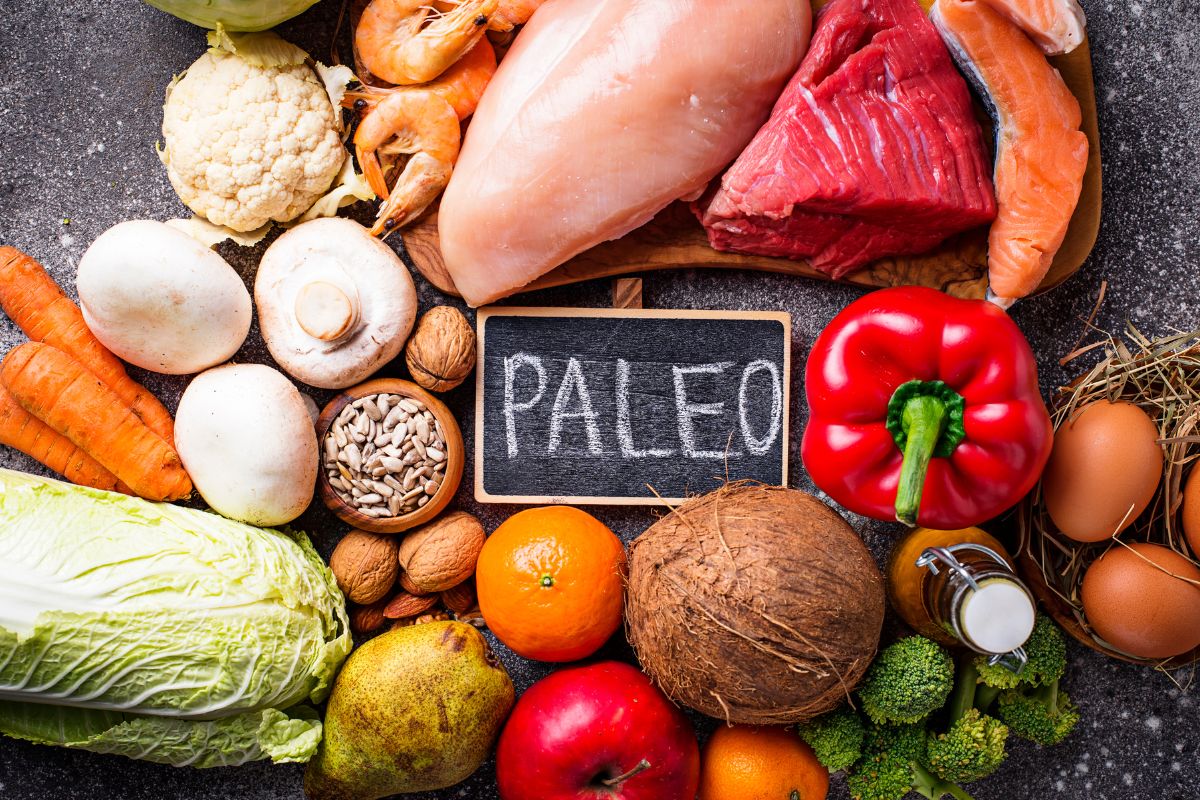The following is geared towards people who want to try out a Paleo diet and who just want to quickly know what they should and shouldn't do.

No background science here or lengthy explanations, only 15 easy guidelines to follow to kick-start your Paleo journey. It's up to you to decide to what extent you want to follow those guidelines, but if you follow them 100% you can be assured that you are eating the best food for your body and greatly investing in your long term health and well-being.
You may also be interested in having a look at our list of Paleo-approved foods.
15 Paleo Diet Guidelines
1. Fat, protein and carbs
A Paleo diet should be high in fat, moderate in animal protein and low to moderate in carbohydrates. Calorie counting is not encouraged, neither is portion control.
2. The good fats
Eat generous amounts of saturated fats like coconut oil and butter or clarified butter. Beef tallow, lard and duck fat are also good, but only if they come from healthy and well-treated animals. Beef or lamb tallow is a better choice than lamb or duck fat. Olive, avocado and macadamia oil are also good fats to use in salads and to drizzle over food, but not for cooking. For more information, have a look at our beginner's guide to Paleo and fat.
3. Good proteins
Eat good amounts of animal protein. This includes red meat, poultry, pork, eggs, organs (liver, kidney, heart...), wild caught fish and shellfish. Don't be scared to eat the fatty cuts and all meals with proteins should contain fat as well. Learn to cook with bones in the form of stocks and broths.
4. Good carbs
Eat generous amounts of fresh or frozen vegetables either cooked or raw and served with fat. Starchy vegetables like sweet potatoes and yams are also great as a source of non-toxic carbohydrates.
5. Fruits and nuts
Eat low to moderate amounts of fruits and nuts. Try to eat mostly fruits low in sugar and high in antioxidants like berries as well as nuts high in omega-3, low in omega-6 and low in total polyunsaturated fat like macadamia nuts. Consider cutting off fruits and nuts altogether if you have an autoimmune disease, digestive problems or are trying to lose weight faster.
6. Grass-fed beef, pastured animals
Preferably choose pasture-raised and grass-fed meat from local, environmentally conscious farms. If not possible, choose lean cuts of meat and supplement your fat with coconut oil, butter or clarified butter. Also preferably choose organic, local and/or seasonal fruits and vegetables.
7. No grains and no legumes
Cut out all cereal grains and legumes from your diet. This includes, but is not limited to, wheat, rye, barley, oats, corn, brown rice, soy, peanuts, kidney beans, pinto beans, navy beans and black eyed peas.
8. No vegetable seed oils
Cut out all vegetable, hydrogenated and partly-hydrogenated oils including, but not limited to, margarine, soybean oil, corn oil, peanut oil, canola oil, safflower oil and sunflower oil. Olive oil and avocado oil are fine, but don't cook with them, use them in salad dressings and to drizzle over food.
9. No sugar or fruit juices
Eliminate added sugar, soft drinks, all packaged sweets and juices (including fruit juices). As a rule of thumb, if it's in a box, don't eat it. At the grocery store, visit primarily the meat, fish and produce sections.
10. No dairy, in most cases
Eliminate dairy products other than butter and maybe heavy cream. You don't need dairy, but if you can't live without it, read this article and consider raw, full-fat and/or fermented dairy.
11. Intermittent fasting
Eat when you're hungry and don't stress if you skip a meal or even two. You don't have to eat three square meals a day, do what feels most natural.
12. Better sleep and reduce stress
Eliminate external stressors in your life as much as possible and sleep at least 8 hours per night. Try to wake up without an alarm and to go to bed when it gets dark.
13. Healthy exercise
Don't over-exercise, keep your training sessions short and intense and do them only a few times per week. Take some extra time off if you feel tired. Consider short and intense sprinting sessions instead of very long cardio sessions.
14. Supplementing
Consider supplementing with vitamin D and probiotics. Levels of magnesium, iodine and vitamin K2 should also be optimized. Iodine can be obtained from seaweeds. You probably don't need a multivitamin or other supplements.
15. Having a fun and active lifestyle
Play in the sun, have fun, laugh, smile, relax, discover, travel, learn and enjoy life like a daring adventure!





Leave a Reply